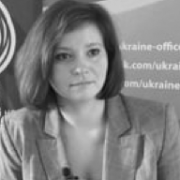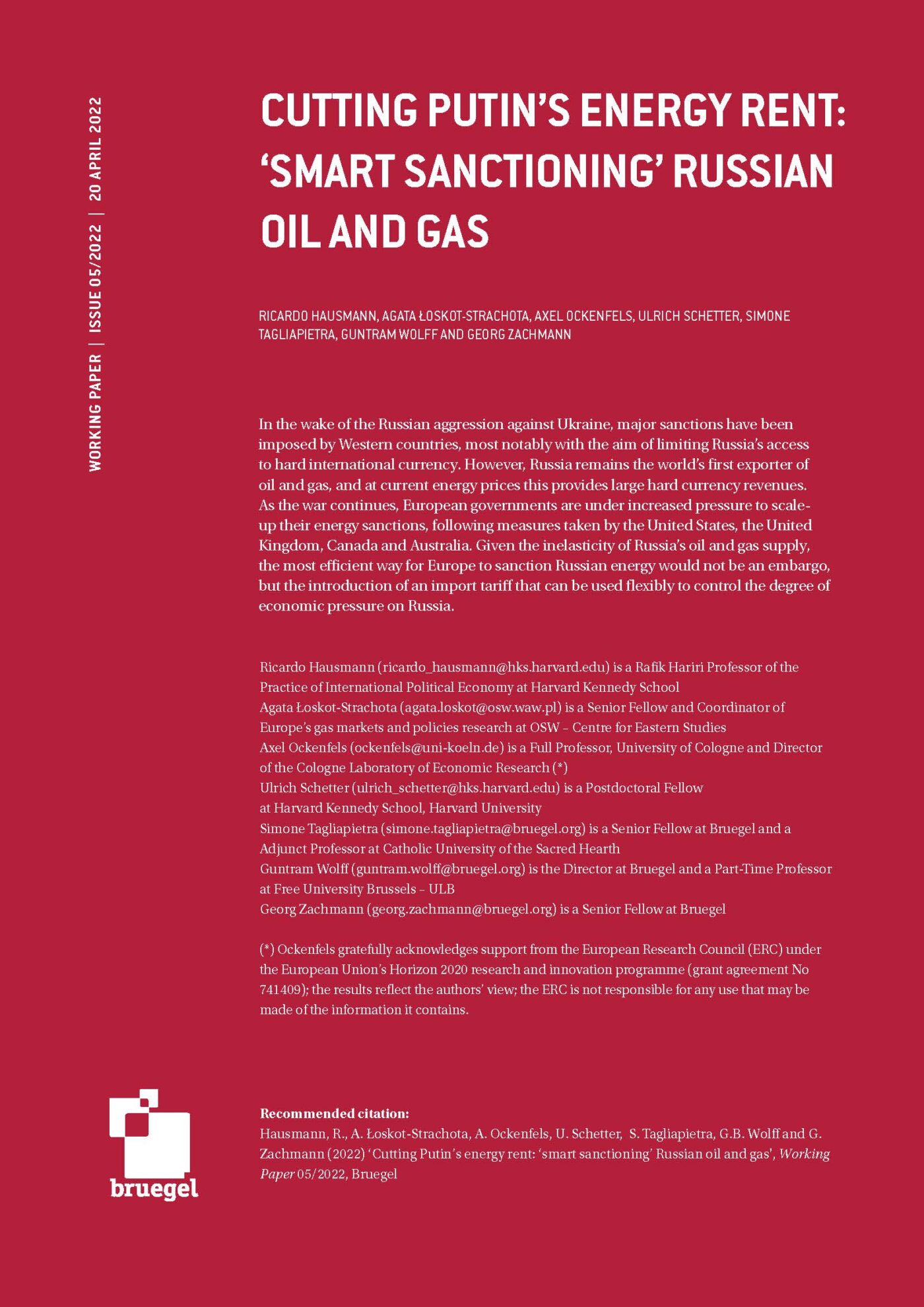Past Event
The Ukrainian economy: the way forward after a year of political turbulence
What can Ukraine do to foster economic growth? How can the EU and other international partners help Ukraine with this process?
video & audio recordings
summary
Having elected a new president in April, the Ukrainian people are set to vote for a new national parliament in July. A new government will be in charge of the Ukrainian economy for the next five years. This political change is unfolding as the Ukrainian economy is slowly recovering from the deep economic crisis of 2014-15, while being under the pressure of high sovereign debt and the aggressive Russian politics.
Under the moderation of Olena Carbou, Executive Director of the Ukrainian Think Tanks Liaison Office in Brussels, this event discussed the main challenges for the Ukrainian economy in the coming years, how the new government can meet these challenges and what role the European Union and other international partners can play in putting Ukraine on a path to sustainable economic growth.
Hlib Vyshlinsky, Executive Director at the Centre for Economic Strategy, sets the stage by presenting important features of the Ukrainian economy. While the strengths of the economy lie in a small budget deficit of 2 to 3 percent of GDP per annum since 2015 and a rather small current account deficit of less than 4 percent, the weak side of the economy manifests itself in comparatively low economic growth, low foreign direct investments (FDI) and a shrinking labour force.
Looking forward, Mr Vyshlinsky is optimistic about the Ukrainian terms of trade in 2019 and the expected upgrade of the Ukrainian sovereign rating in 2021. However, he also points to several risks that are looming over the economy. First, $20 billion of public external debt has to be repaid over the next three years, this is a large sum considering the fact that it is equivalent to the total reserves holding of the National Bank of Ukraine. A large part of this debt is owed to the IMF and other international institutions. Second, because the natural gas transit contracts with Russia expire at the end of 2019, transit fees of up to 4 percent of GDP could fall away. Finally, Mr Vyshlinsky argues that political unpredictability constitutes a general threat to the Ukrainian economy because of its effects on market participants, particularly on investors.
In light of this situation Mr Vyshlinsky recommends several economic policy measures that the new Ukrainian government should pursue. First and foremost, he argues, the new government must maintain macroeconomic stability by being fiscally prudent and maintaining central bank independence. This will preserve and further trust of creditors into the country. Secondly, several measures should be taken to increase productivity. A land reform could improve the allocation of so far underused farmland, privatization of state-owned enterprises (SOEs) in sectors such as power or transportation could improve efficiency and the liberalisation of capital controls and better customs procedures could improve Ukrainian companies’ competitiveness in the global economy.
Equally important measures have to be taken outside the realm of economics. Mr Vyshlinsky highlights the fact that widespread corruption and lack of trust in the judiciary bodies are the two most important obstacles to foreign investment and increased bank lending. Therefore, to establish the rule of law in Ukraine, he recommends a relaunch of the judiciary reform, as well as the reform of economic crimes investigations. As Ukraine is facing a declining labour force, Mr Vyshlinsky recommends to increase labour participation rates through policies such as increased day-care and higher education reform, to rethink migration policies and to increase healthcare investment, which is comparatively low. Finally, Mr Vyshlinsky argues that a European Union membership perspective has important effects on economic growth and should therefore be pursued strongly by the incoming government.
Elena Flores, Director of International economic and financial relations at DG ECFIN, gives the European Commission’s perspective on the Ukrainian economy. She starts out with an appreciation for the achievements made so far in Ukraine by highlighting that growth has been positive since the peak of the conflict in 2016, which is overall a good situation, and that public finances have been consolidated and well managed. Furthermore, inflation has come down and exchange rates have remained stable over the last couple of years. Many reforms have been initiated, often motivated or even facilitated through partnerships with the EU. Ms Flores points out that the EU not only provides technical support and engages in policy dialogues but also mobilized a large amount of capital to support reform efforts in Ukraine.
Looking forward, Ms Flores identified a range of challenges. Firstly, macroeconomic stability is a permanent challenge that has to be managed carefully. Secondly, the upcoming debt repayments will require the Ukrainian government to go to the markets. Therefore, especially in the current context of some emerging markets being perceived as risky borrowers, the incoming Ukrainian government will need to make sure that markets keep a positive view of Ukraine.
Ms Flores highlights several reforms that need to be tackled, to get the transformation of the Ukrainian economy going. Recently, important anti-corruption reforms have been enacted and Ms Flores says that the European Commission is now observing the implementation of the new legislation, hoping that Ukrainian authorities establish a track record of effective application. Concerning state-owned enterprises, she says that the current process of improving SOEs’ governance structures is on a good way but needs to be continued to the end. While she agrees with Mr Vyshlinsky that certain SOEs need to be privatized, she also points out that this has to happen in an orderly and efficient way to avoid mistakes that have been made in other countries.
In the energy sector, which is a very critical sector and linked to the issue of corruption, Ms Flores notes that the implementation of the new market legislation for electricity and gas is slow and needs to be stepped up. To facilitate foreign investments, which are required to foster further economic growth, the Ukrainian government should implement the reforms outlined in the association agreement with the EU. Ms Flores acknowledges that land reform is difficult but points out that it is a very important reform because agriculture is the critical sector for reaching a next stage of growth. Finally, a reform of tax and custom services should aim at the separation of the two services.
In the financial sector, Ms Flores says that the management of non-performing loans and the development of an independent supervision system are two of the most important challenges. Finally, she insists that economic growth in Ukraine needs to become more inclusive, which can be done through reforms of the education, pension and healthcare systems.
Marek Dabrowski, non-resident fellow at Bruegel, starts his presentation of reform priorities for the coming years with the remark that while time is pressing, he doubts that reforms will be enacted in the coming two years because of parliamentary elections and the formation of the new government. He says that he is not as optimistic as others about the Ukrainian fiscal balance, not only because the overall level is high, but particularly because the majority of government debt is issued in foreign currencies. While the exchange rate has remained stable in the last years, an economic shock can easily result in a large increase of Ukrainian debt, pushing it above 100 percent of GDP.
Mr Dabrowski argues that the current positive market vied of Ukraine is due to the backing by the EU and the IMF, which basically act as lenders of last resort. He warns that if doubts arise over the backing of these institutions, Ukraine could very quickly fall into bankruptcy. Unresolved political and military conflicts, and the perception that the Ukrainian economy stands on a fragile macroeconomic basis, deters foreign and domestic investors according to Mr Dabrowski.
A second issue for Mr Dabrowski is financial stability. Despite enormous efforts by the central bank and government, non-performing loans still exceed 50 percent, according to an IMF report. This leads Mr Dabrowski to estimate that another $7 to 8 billion will needed to be injected into the Ukrainian banking sector to avoid a banking crisis. To make the Ukrainian fiscal balance sustainable, Mr Dabrowski thinks that the pension system, which reaches 10 percent of GDP, needs to be reformed to limit the number of beneficiaries.
On the energy sector reform, Mr Dabrowski sees progress in new gas legislation but also stagnation in the implementation of this legislation and the planned restructuring of Naftogaz. He underlines the importance of a general energy-market regulation, especially for electricity where corruption is a large issue. On land reform and privatization of SOEs, Mr Dabrowski agrees with the other panellists that these are important priorities which can curb corruption and improve the business climate.
Finally, Mr Dabrowski proposes reforms for several political rules and institutions in Ukraine. He suggests a constitutional reform to abandon the two-head executive, which he argues gives rise to rivalries, to make it easier to form parliamentary majorities and to clarify contradictory and unclear rules. Also, he criticises the mixed electoral system, which he says creates corruption, the current rule for party and election campaign financing and the majority rules, which he thinks need to be adjusted. Mr Dabrowski deems decentralisation an important project which has so far only been partly accomplished. And while judiciary and police reform have been started, they are still far from being accomplished and reforms of security agencies and public administration are necessary but still lacking, according to Mr Dabrowski. These reforms, he argues, are extremely important to fight corruption, to reduce inefficiencies and to improve the overall business environment.
Ivan Miklos, Chairman of the Strategic Advisory Group for Supporting Ukrainian Reforms, says that he agrees with Mr Vyshlinsky’s optimistic assessment of the short-term but is, as Mr Dabrowski, more pessimistic in the longer-term. Looking at the last five years’ achievements of the Ukrainian government, Mr Miklos assesses why not more has been done. While on one hand, there have been unrealistic expectations of what can be achieved, on the other hand, there has also been a lack of political will and leadership to pursue more reforms. After the collapse of the Soviet Union, an oligarchic system filled the power vacuum in Ukraine. He argues that it is only since the start of Russian aggressions that this system has been changing. This development is mainly due to the emergence of a national consensus that Ukraine should move towards EU membership.
But the economic downturn after Maidan disappointed many people and even if actual levels of corruption have decreased, citizens were still disappointed because they had expected the end of corruption. It is in this context, that Mr Miklos raises the issue of a dysfunctional political process where only 30-40 % of legislative proposals are passed. He sees hope though, in a group of new, young members of parliament who are pushing for actual reforms and, even though they represent different parties, cooperate to pass reform legislation that brings Ukraine closer to the EU.
Mr Miklos expects that the share of these new, pro-reform members of parliament will increase in the upcoming legislative period. Additionally, as Ukraine will need the support of international financial institutions and the goodwill of the markets, external pressure on the government to continue reforms will not cease. These are reasons for Mr Miklos to be optimistic about the continuance of reforms in Ukraine.
However, Mr Miklos also sees aspects which are threatening Ukrainian reform efforts. He argues that reforms need leadership, ownership and good communication. Ownership means that a government has the self-motivation to pursue a reform because the resulting benefits are internalized and well acknowledged. Mr Miklos fears that after 2021, when a large amount of external debt has been refinanced, external pressure from institutions like the International Monetary Fund will fade and the government will be unable to sustain sufficient ownership for further reforms.
During the Q&A, the audience raised questions concerning Ukraine’s dependence from Russian gas, the likelihood and consequences of a potential sovereign debt default in Ukraine and the trade-off between long-term gains and short-term adjustment costs from reforms.
On energy dependence, Mr Vyshlinsky stresses that while Ukraine does not purchase any gas from Russia, it is very much dependent on the European Union. Mr Miklos adds to this that Ukraine strives to be self-sufficient through domestic production by 2020. Panellists are in agreement over the fact that a default of Ukraine would be a large blow to its reputation and would likely lead to a crash in the banking sector. The overall result would be a decline of Ukrainian living standards. However, the panel also agreed that the repayment of external debt over the next three years should not be problematic if the new government stays on track with enacting reforms and behaves in a fiscally responsible way.
Discussing the costs of reforms, the panel generally thinks that the required reforms can be made without large concessions from the broader public. Mr Vyshlinsky says that no hugely unpopular measures have to be taken and that IMF programs are clearly unpopular with elites and corrupt oligarchs but no issue for ordinary citizens. Mr Dabrovski adds that fast reforms will lead to faster results and that in the case of Ukraine, the reforms are not very painful.
Notes by Michael Baltensperger
materials
Schedule
12:30-13:00
Check-in and lunch
13:00-14:15
Panel discussion
Chair: Olena Carbou, Executive Director, Ukrainian Think Tanks Liaison Office in Brussels
Marek Dabrowski, Non-Resident Fellow
Elena Flores, Deputy Director-General, European Commission, DG ECFIN
Ivan Miklos, Chairman of the Strategic Advisory Group for Supporting Ukrainian Reforms (SAGSUR)
Hlib Vyshlinsky, Executive Director, Centre for Economic Strategy (CES)
14:15-14:30
Q&A
14:30
End
Speakers

Olena Carbou
Executive Director, Ukrainian Think Tanks Liaison Office in Brussels

Marek Dabrowski
Non-Resident Fellow

Elena Flores
Deputy Director-General, European Commission, DG ECFIN

Ivan Miklos
Chairman of the Strategic Advisory Group for Supporting Ukrainian Reforms (SAGSUR)

Hlib Vyshlinsky
Executive Director, Centre for Economic Strategy (CES)
Location & Contact
Matilda Sevon
[email protected]















